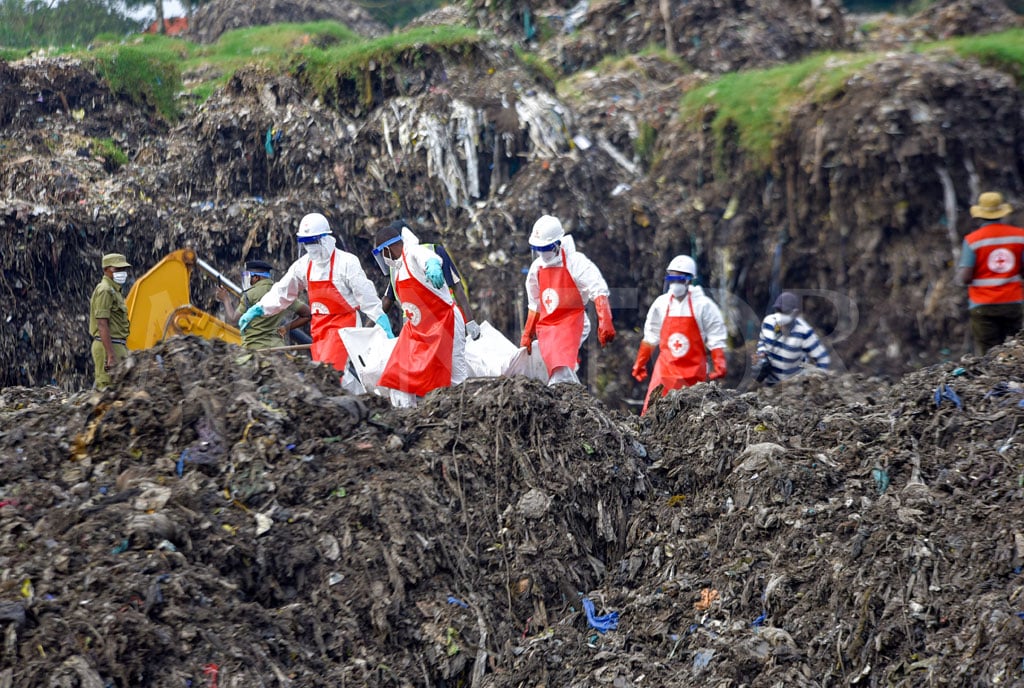
Mr Daniel K. Kalinaki
There are many strands to the tragic story of Kiteezi, the sleepy, stinky village that last week descended into infamy after a landslide buried many people. How many? No one really knows. At the time of writing 24 bodies had been recovered, but surely there must be more entombed in the detritus of our urban lives.
Death is death, but not everyone dies the same. They had names and faces and stories, but the victims here have mostly been just statistics. There are few missing person posters on social media. They will be missed, but they also won’t be missed; nobody misses nobodies. Even the condolence message from the palace came two days after the fact.
It is because the victims here were the wretched of the earth, living cheek-by-jowl with the country’s biggest garbage dump. Many did so because they eked a living out of what the rest of us no longer needed or wanted. As they rummaged through the rubbish, they competed with those sturdy sentries of the city, the marabou storks, and often, the air traffic controllers above; the vultures.
Both bird species play important and often ignored roles of cleaning up so that the spread of germs and disease from rotting matter is reduced. In a way, the Victims of Kiteezi played the same role, only in human form. No one knew or cared about them – until their dreams were buried with their bodies. Then we noticed that the trash trucks had not come and our garbage had not been collected.
It was then that we were reminded of the elaborate underground system and its unseen, unacknowledged faceless sub-people who make life a lot more bearable for the rest of us.
The negligence is criminal. I have lost count of the number of people who have come forward to say that they approached the city authorities with solid plans to take care of our solid waste. One person I spoke to said under their plan the city did not have to invest a cent or lift a finger. All they had to do was to guarantee that they would buy the electricity produced from incinerating the garbage.
If you live in Kampala with all its garbage and dirt you must wonder why anyone with such a win-win idea wasn’t given the keys to the city. The answer, I am pretty darn sure, lies in whoever was making a killing – literally, as it has now turned out – from dumping unsorted and unprocessed garbage into the middle of a residential area.
The images from Kiteezi are a mix of sorrow and shame. Sorrow by the relatives, friends and in-laws of those killed or injured. Shame, from all the plastic waste; bags, bottles, and all manner of plastic trash.
Did we not pass a law many years ago proscribing the production and use of thin single-use plastic carry bags? Aren’t they still the packaging item of choice in many places? How come other countries in the region, with significantly fewer policing resources than us, can police the production and importation of single-use plastics whose damage to the environment is self-evident and empirical?
Cities are negotiated settlements. Residents often trade space for convenience and location, privacy for shared spaces, and individual choices like playing loud music or rearing their domestic fowl willy-nilly for some semblance of public order. Kiteezi is just the saddest reminder of how bad a deal the residents of greater Kampala have ended up with.
Programmes to reduce, reuse and recycle things have been going on for decades in most cities. Paper, plastic, glass, metal and organic matter all go to different collection points so that they can be dealt with more easily. Here, I cannot find a single garbage trash can on my 15-kilometre commute to work.
We need not say anything about the roads because there is nothing there: no road, nothing to say. But even the softer things are unmanaged; places of prayer so loud, one suspects the good Lord must be hard of hearing. Traffic that is unpredictable and managed on a whim; where else do traffic police officers allow – no, in fact encourage – road users to drive and ride on the wrong side of the road into on-coming traffic?
With any luck, the lives lost at Kiteezi will allow us to change the way we sort and dispose of garbage. But it should do more to trigger a wider conversation about the chaos, disorder, anarchy and danger into which Kampala has descended. Dear residents and friends of Kampala, we need to talk.
Mr Kalinaki is a journalist and poor man’s freedom fighter.
[email protected]; @Kalinaki








